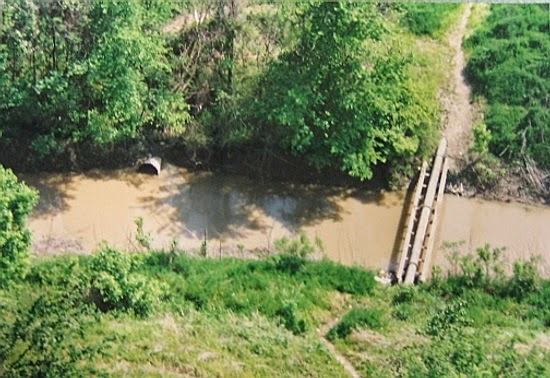Cult-Fave Writer Jim Goad Explores Idaho and Anti-Rural Sentiment
The Taki’s Magazine columnist and author of The Redneck Manifesto takes a look at the intriguing culture of America’s least heralded state in the new e-book Potatoes on the Moon.
By: James Swift
uncommonjournalism@gmail.com
@UNjournalism
Jim Goad’s machine gun prose and acidic, anti-P.C. humor have earned him legions of followers. Among those who cite the Philadelphia native as an influence are comedians Patton Oswalt and Margaret Cho, as well as Fight Club scribe Chuck Palahniuk.
Goad’s irreverent brand of social satire, however, has stirred up just as much controversy as praise. His influential indie ‘zine ANSWER Me! has been linked to neo-Nazi suicides and a man who once attempted to shoot up the White House. The infamous “rape issue” even resulted in a 1995 obscenity trial in Washington.
By 1997, the self-described misanthrope was on the cusp of mainstream assimilation. He inked a two-book deal with publishing Leviathan Simon & Schuster and made the media rounds on programs like Politically Incorrect to promote his first book, The Redneck Manifesto.
Less than a year later, Goad would find himself behind bars. His notorious riposte when asked if he felt sorry for assaulting his combative gal pal? “Absolutely not. I enjoyed it.”
After being released from the slammer in 2002, Goad -- who is now a 54-year-old father and amateur yogi residing in the penumbra of Stone Mountain, Georgia -- has largely stuck to self-publishing and writing columns for websites like Taki’s Magazine and Thought Catalog. Having already explored seedy subjects like reverse racism, prison life and online stalkers, he decided to tackle a more obscure subject for his latest book.
“We were talking about beautiful states and I brought up Idaho,” Goad said during a discussion with fellow Thought Catalog scribes. “One of the other writer’s response was ‘what the hell is there to see in Idaho?’ It occurred to me that people never think about Idaho … the impressions they have are either nonexistent or really, really negative.”
That inspired Goad to embark upon a week-long exploration of the Gem State alongside his trusty female companion Bubbles. The sociological adventure became the backbone of Goad’s latest literary endeavor, Potatoes on the Moon.
“It’s a real outpost of extreme libertarianism, scattered militias [and] rumored hate groups, especially up in the northern panhandles,” he said. “I just wanted to go there and rub elbows and see what I came back with.”
A No Man’s Land Wonderland
In 1910, nearly three-quarters of the United States populace lived in rural areas. A century later, less than 20 percent of the nation’s citizens live outside urban and suburban enclaves.
“What makes Idaho so weird is that it’s never changed,” Goad said. “By not changing, it’s suddenly exotic.”
Since Idaho is nestled in the rugged terrain of the Rockies, no large cities ever emerged. Today, Goad said the citizenry maintains its “pioneer, individualistic, get-the-hell-away-from-me” attitude -- a disposition he said he can certainly relate to. Alike the famed mountaineer Jim Bridger and many modern day Idahoans, Goad said he too likes places more than he likes people.
On his week-long trek through the 43rd state admitted into the Union, Goad blazed a 500-mile path, snaking his way from state capital Boise all the way up to Sandpoint, a panhandle town an hour’s drive away from the Canadian border.
“We made our way down through some of the most mind-bendingly beautiful wilderness I’ve ever seen,” he said. “I almost didn’t want to leave. I was depressed almost the minute I got there, because I knew I would have to.”
Goad said the state is easily one of the most gorgeous in the nation. “It’s like Norway or Switzerland, once you get north of Boise,” he said. “There are some places so beautiful that just being there feels like falling in love.”
However, it is not just the untainted natural landscapes that make Idaho such an appealing destination, he said. He recalled meeting a man with “a manic gleam in his eye” on a trail along the Clearwater River.
“He just unspooled about how he thought the U.N. plans to cram everybody into cities as part of the depopulation program,” Goad recalled. “You could take anyone from the city, any troubled urban youth, bring them out there and within half an hour, from the air and the aromatherapy, they’d be mentally healthier.”
Despite the lower population density, Goad said the less-cramped countryside inspires people to be more sociable. Had he met that same man walking down the street in the Bronx, Goad said he likely would not have made eye contact with him, let alone have engaged in discourse.
“You have deeper political conversations just running into someone walking along some trail,” Goad said, “than you would any Starbucks in any city in the country.”
Goad recalled another encounter -- this time, a lunch date with Michael A. Hoffman II, one of the country’s most prolific Holocaust deniers and anti-Masonic conspiracy theory proponents.
Despite Hoffman’s highly controversial opinions, Goad said he was nonetheless an amicable fellow.
“We were up in hate country, the most hateful, hate-filled nest of extremists and lunatics,” Goad said, “and he was absolutely polite.”
Urban Supremacy?
 |
| Author Jim Goad said his latest book isn't just an immersionist romp through the Rockies -- it also has something profound to say about the increasing divide between rural and urban America. |
“You can’t make it exciting,” he said. “If a terrorist attack were to happen, the bomb might yawn before going off.”
He recalled visiting a karaoke bar in the spud state’s capitol. Watching a biker get cold-cocked by a bouncer, he reflected on his earlier adventures. “The night before,” he said, “I was soaking in a natural hot springs under a full moon, way out in the wilderness in an area that’s only accessible by snowmobile in the winter.”
Boise, Goad said, is emblematic of something he calls “urban supremacy” -- that being, a prevailing national notion that cities and progressivism are just flat out better than low-density rural areas and their largely apolitical, individualistic characters.
Its free, artsy, counter-cultural weeklies and depressing galleries make Boise feel like every other urban core in the country, he said.
“In this supposed ground zero of white supremacy, there are no museums or monuments to whiteness, but they’re doing like everywhere else, these guilt rituals through holocaust museums and slavery museums,” he said. “Even there, there was this sort of cultural Marxist, pro-globalist ethos taking over.”
He finds it strange there is a memorial in Boise dedicated to Anne Frank, but no monuments dedicated to the Christian and Mormon settlers who have called Idaho home for 150 years. Even stranger, he said, is the existence of the Idaho Black History Museum in a state that was founded a quarter century after slavery ended, whose contemporary African-American population entails less than 1 percent of its total population.
While many “urban supremacists” pride themselves on being tolerant and unbiased, he said many of those some proponents are openly hostile and insensitive towards the denizens of the countryside.
“The media is entirely urban, the financial centers are urban and there is chauvinism toward rural people and rural culture,” Goad said. “Those dumb, inbred redneck extremist hillbillies are every bit as human as they are, and probably tougher.”
When he was younger, the Mid-Atlantic-weaned Goad said he “fetishized” huge buildings and colossal cities. After spending years in megalopolises like New York and Los Angeles, Goad said he now has a deep reverence for America’s unpaved and underpopulated backroads. The sounds of fluttering hummingbirds and croaking frogs, he said, is a much sweeter tune than the sound of bustling traffic and people being stabbed.
“There’s a word that progressives use a lot of times, sustainability,” he said. “I don’t think this current system is sustainable, and I think there’s going to be some sort of collapse.”
He said he is reminded of that “weird, manic, physically ill prophet” he encountered on the Clearwater River trail.
“I hope I’m paranoid and completely wrong,” Goad continued, “but I do think if that happens, it's probably the people out there who will survive and not the urban-dwellers.”
Turning Over a New Leaf?
After penning five books, going on tour with Hank Williams III and writing more than 400 articles for Taki’s Magazine, Goad said he’s considering switching literary gears.
“I’m getting near the end of the line just writing about politics,” he said. “It dawned on me only very recently that most people really don’t want to discuss topics. They’ve got a team and an ideology and no amount of facts or logic or persuasion will budge them. It’s a fruitless procedure.”
After publishing his exposé on Idaho, the survivor of prison, brain surgery and numerous “ongoing public crucifixions” said he’s thinking about taking a page out of Conway Twitty’s book.
“Around the mid ‘60s, he said ‘I think I’ve lived long enough I can sing country music,’ meaning he went through enough trauma and heartbreak that he was able to represent them in that genre,” Goad said. “I think I’ve met enough truly weird fucking people and experienced enough quirks and patterns of human behavior that I’d like to write fiction one day.”
It’s a pretty big change of pace from the explicit sex humor, racial satire and transgressive social commentary Goad has written in the past, but he said he has the storytelling chops to at least give it a try.
“After writing about serial killers and true crime stuff in ANSWER Me! and all of the sex stuff in my sex book and all of the politics,” Goad said, “I think some of it could be really good.”
Uncommon Journalism, 2015.




Jim Goad gets more boring as time goes on. I hope he can get a real job soon.
ReplyDeleteYou are full of shit. Jim Goad is one of the best and most honest writers of the modern era, and he hasn't slowed down or gotten boring at all with age.
Delete